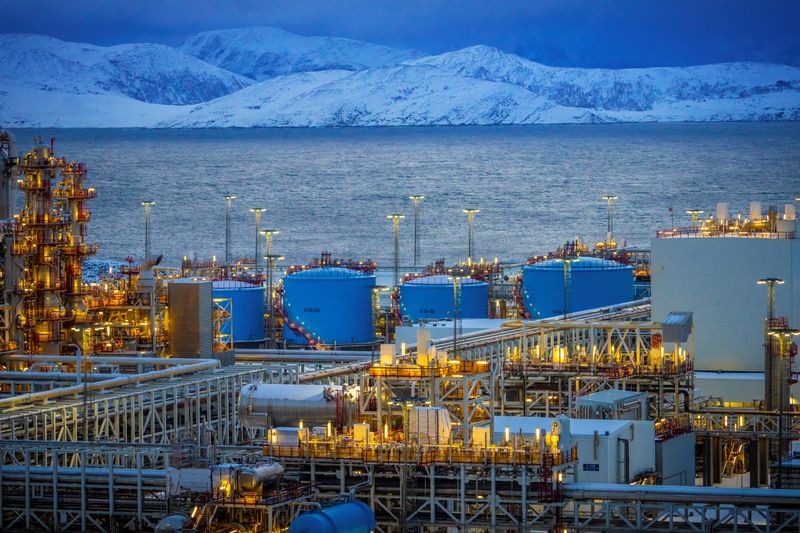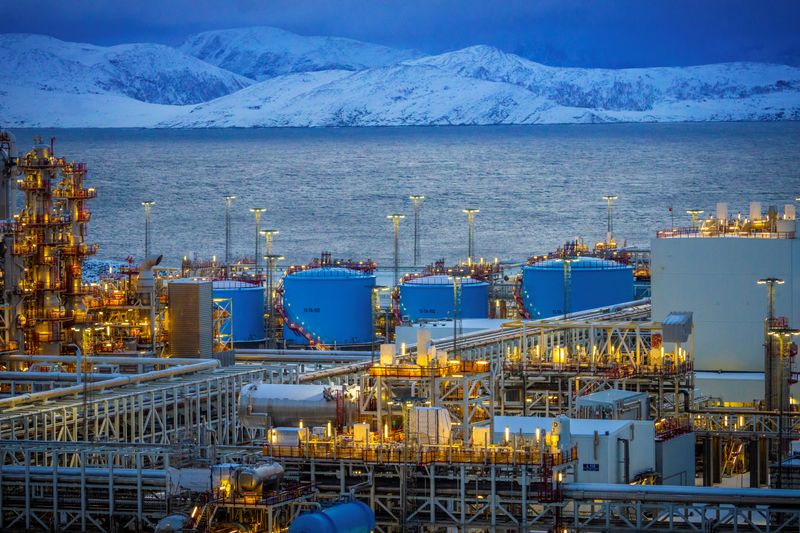
By Nerijus Adomaitis and Nora Buli
OSLO (Reuters) -Equinor said on Thursday it may invest less in renewable energy towards 2030 following its acquisition this month of a stake in wind power group Orsted (CSE:ORSTED), while reporting weaker-than-expected third-quarter profits.
Equinor on Oct. 7 announced a $2.5 billion purchase of a 9.8% stake in Orsted, surprising some investors, and said it planned to raise this to 10% pending regulatory permission.
The transaction would count towards Equinor’s renewable energy portfolio target, adding 1.7 gigawatt (GW) of net generation capacity out of the company’s goal of installing 12-16 GW by 2030, the Norwegian company has said.
“We see that making a transaction like this we get access to offshore wind projects at a much more reasonable price than building it ourselves,” Equinor CFO Torgrim Reitan told analysts on a conference call on Thursday.
“This will take us in a profitable way towards the target, meaning that we can spend less organic capex moving towards that target,” he said without elaborating.
Investors have grown increasingly weary of plans by oil companies to rapidly expand within renewables, and some majors such as BP (NYSE:BP) and Shell (LON:SHEL) have retreated from some of their earlier plans.
Equinor has previously said it plans to allocate at least half of its capital expenditure to renewables and low-carbon solutions in 2030.
Equinor’s share price rose 2.8% by 1129 GMT, outperforming a 1.1% rise in European energy stocks.
Organic capital expenditure in 2024 was, meanwhile, seen at between $12 billion and $13 billion, down from a previous forecast of $13 billion, an Equinor statement showed.
The adjustment reflected lower investments in its Polish and Brazilian onshore renewable portfolio as well as currency effects from a weaker Norwegian crown, CEO Anders Opedal said.
The company kept its oil and gas output outlook for 2024 unchanged, but cut its expected 2024 renewable energy output growth to 50% from 70% previously due to a delay at the Dogger Bank A wind project off the British coast.

The Norwegian oil and gas producer’s adjusted earnings before tax for the July-September period fell to $6.89 billion from $7.93 billion a year earlier, lagging the $7.08 billion seen in a poll of 25 analysts compiled by Equinor.
Equinor in the third quarter pumped 1.98 million barrels of oil equivalent per day (boed), in line with expectations in the analyst poll, down from 2.01 million boed a year ago.
This post is originally published on INVESTING.




